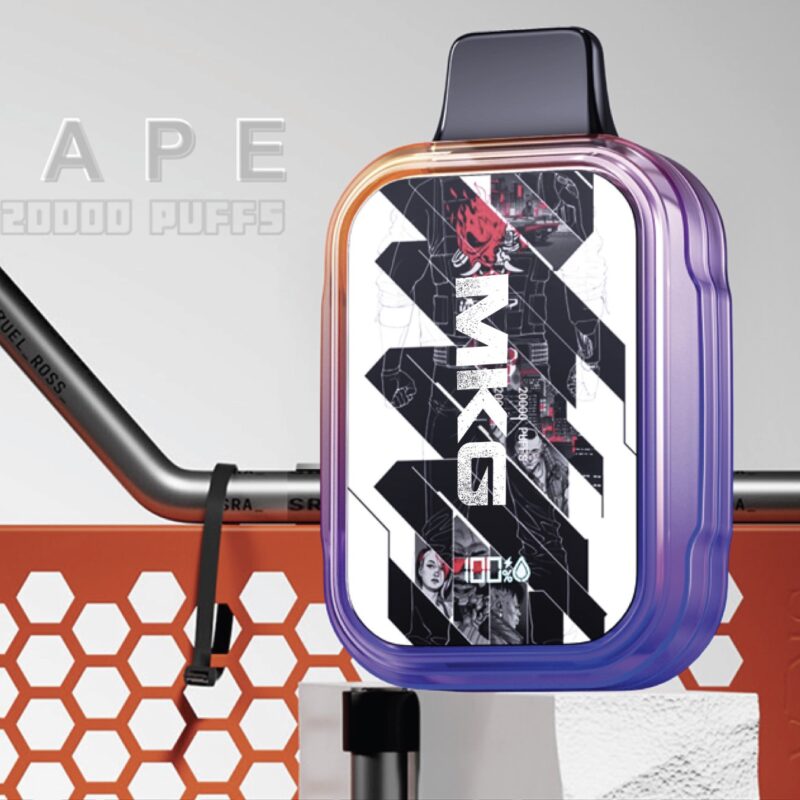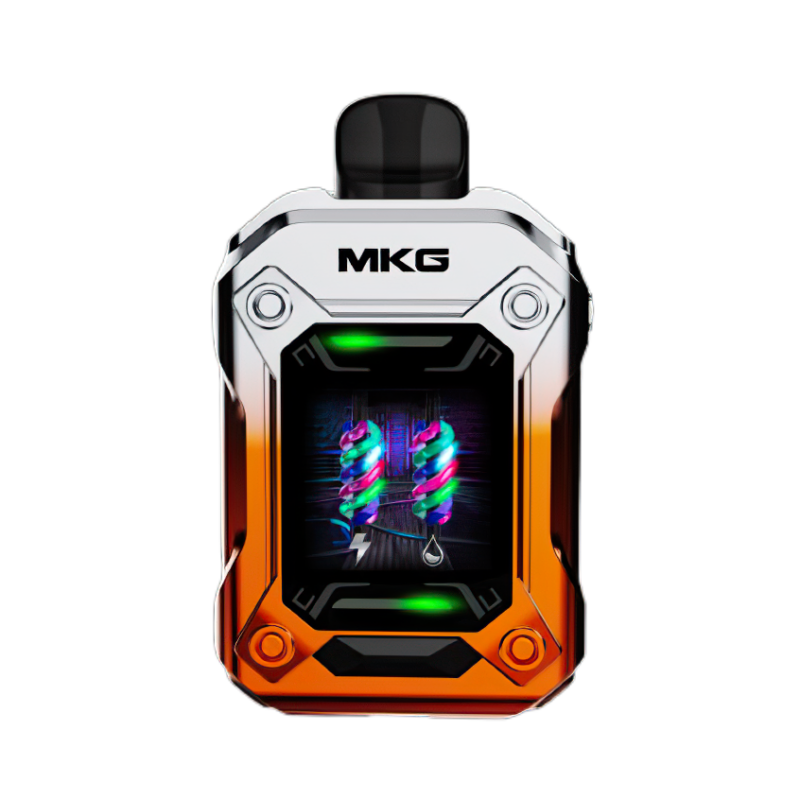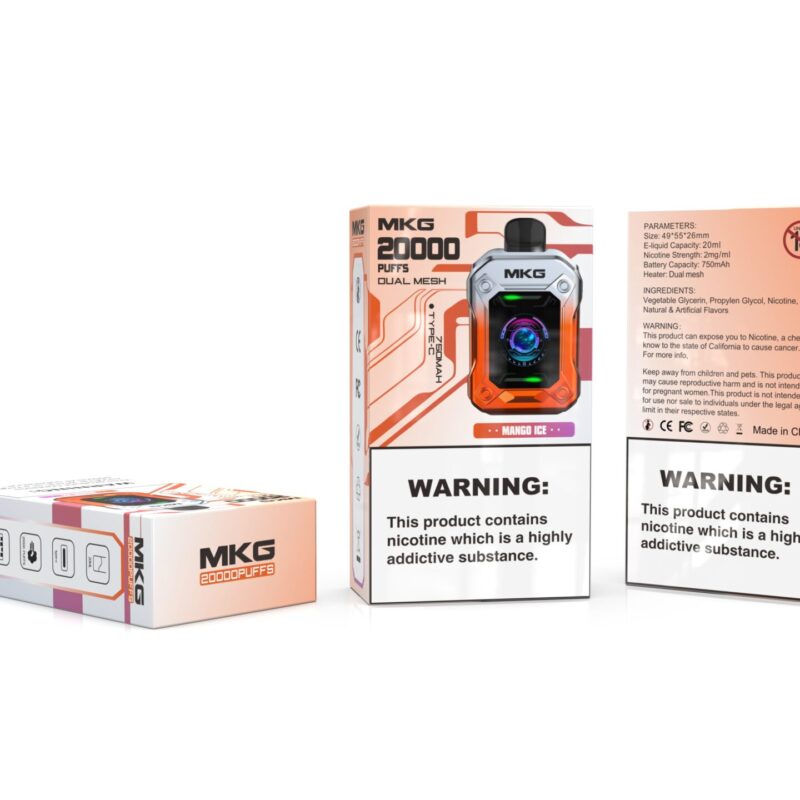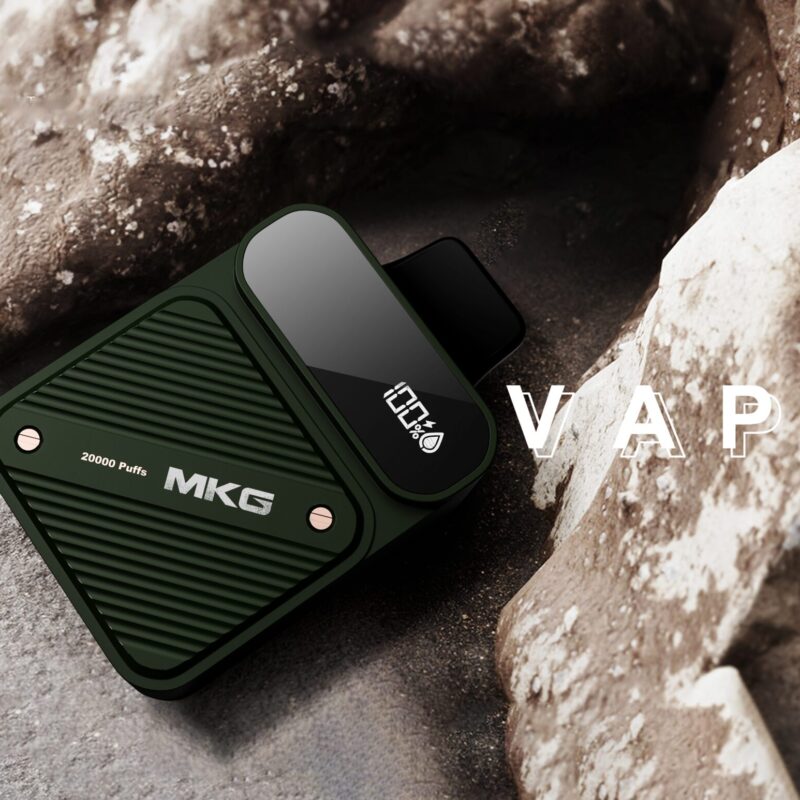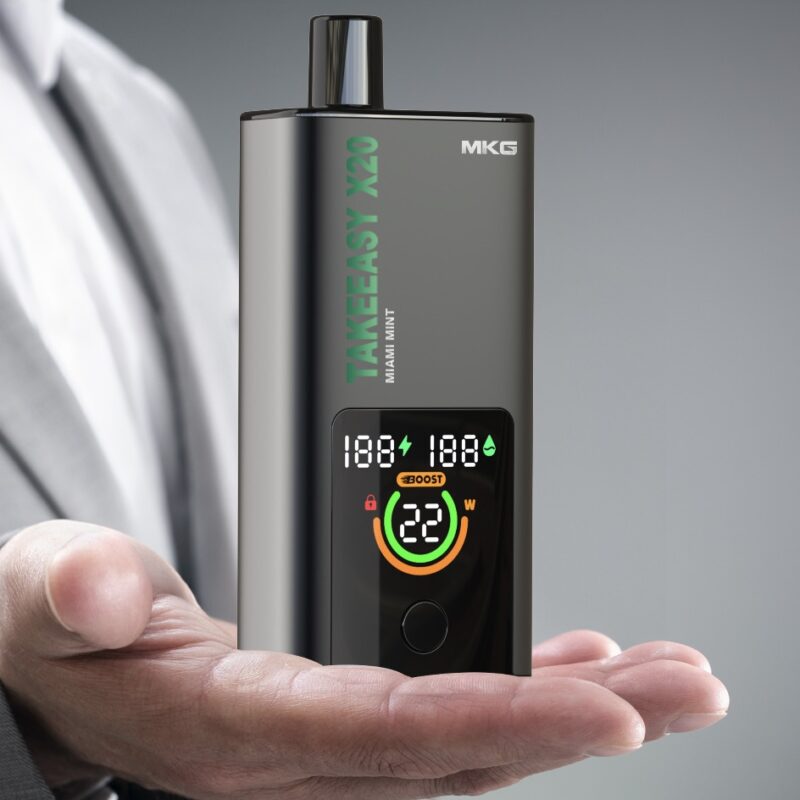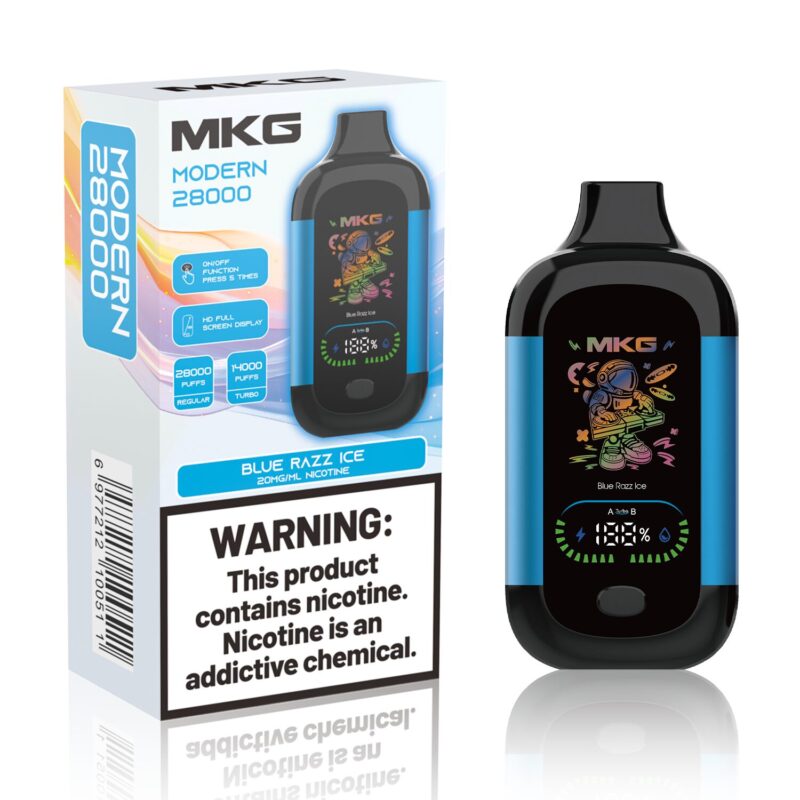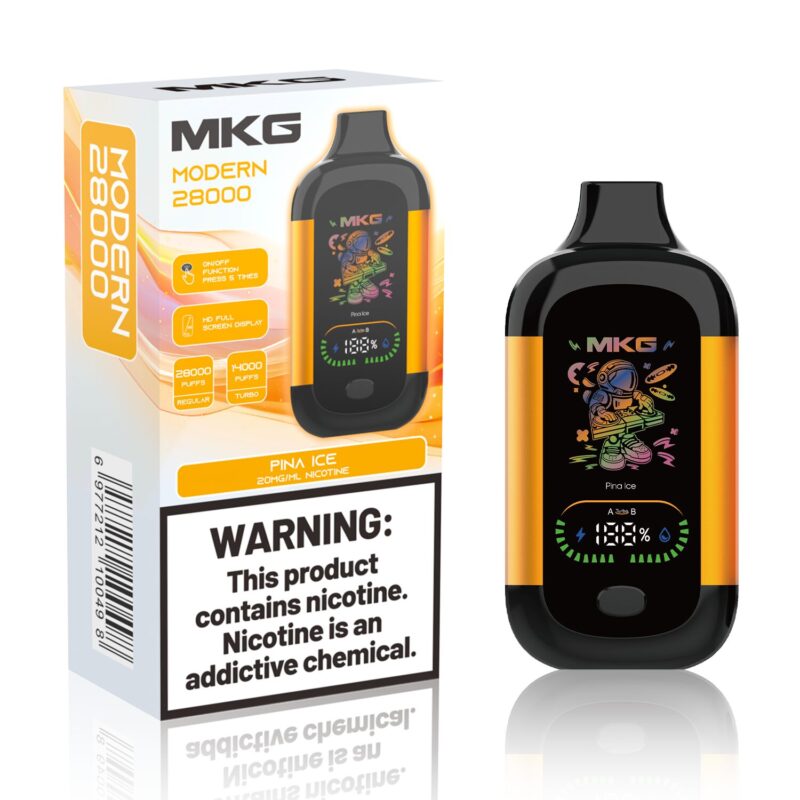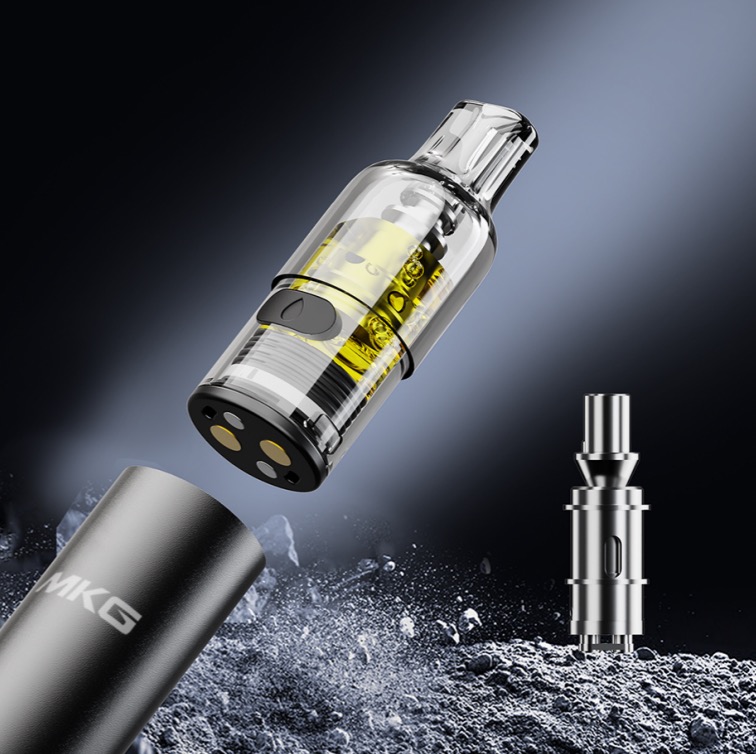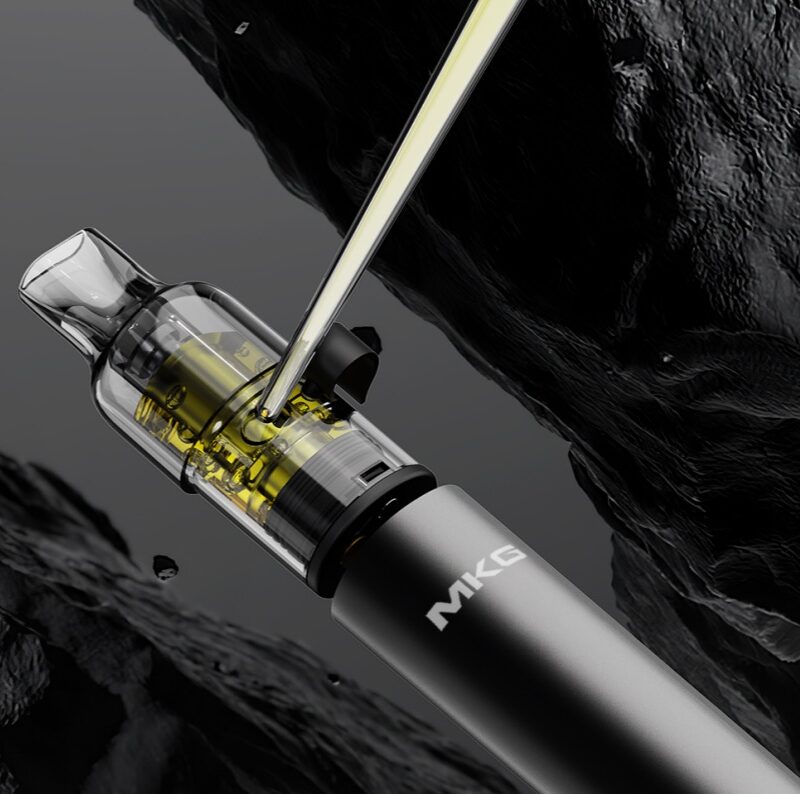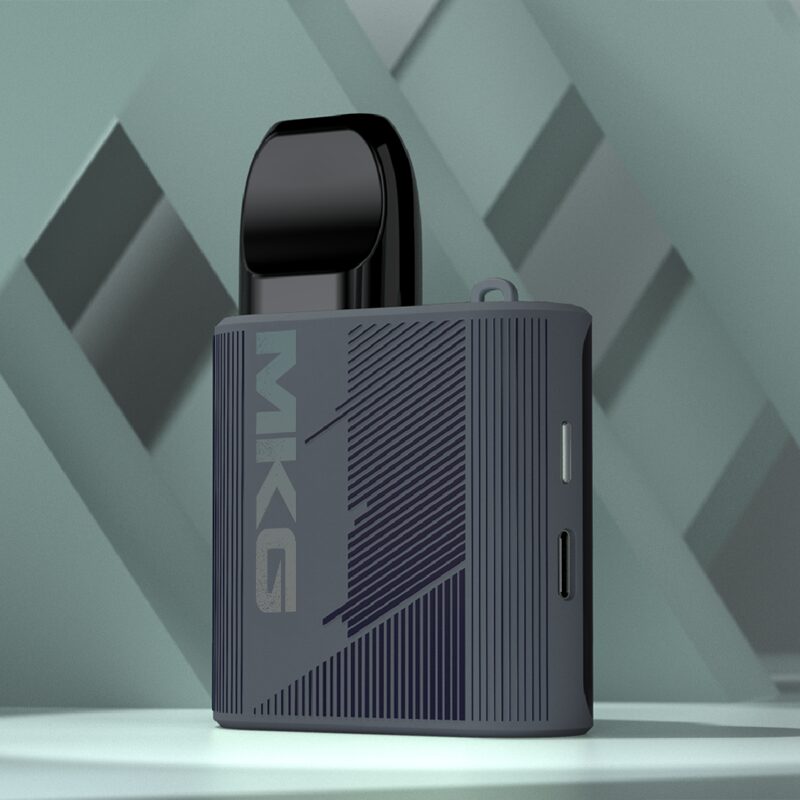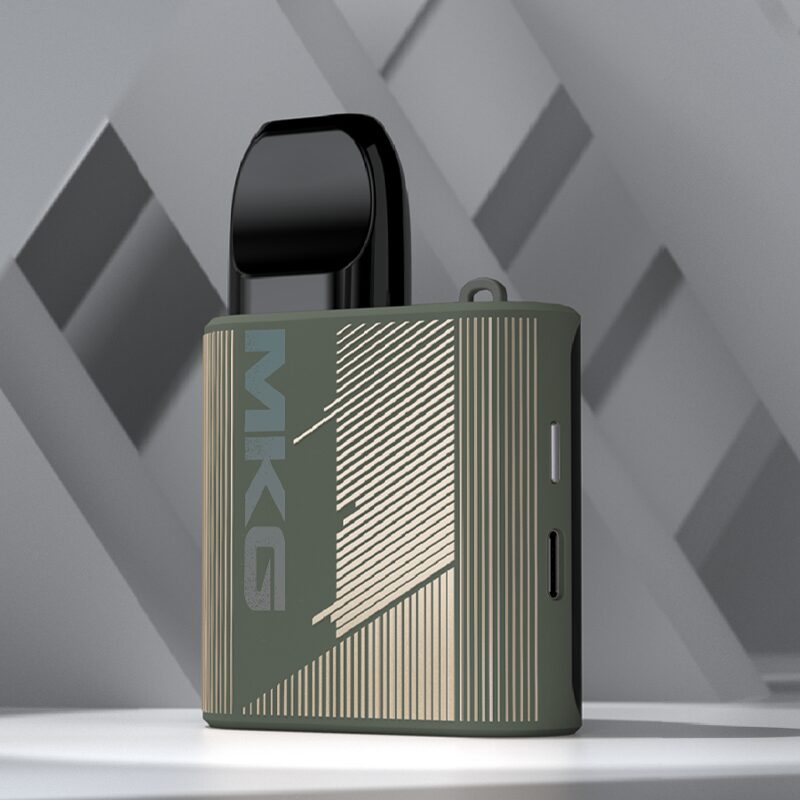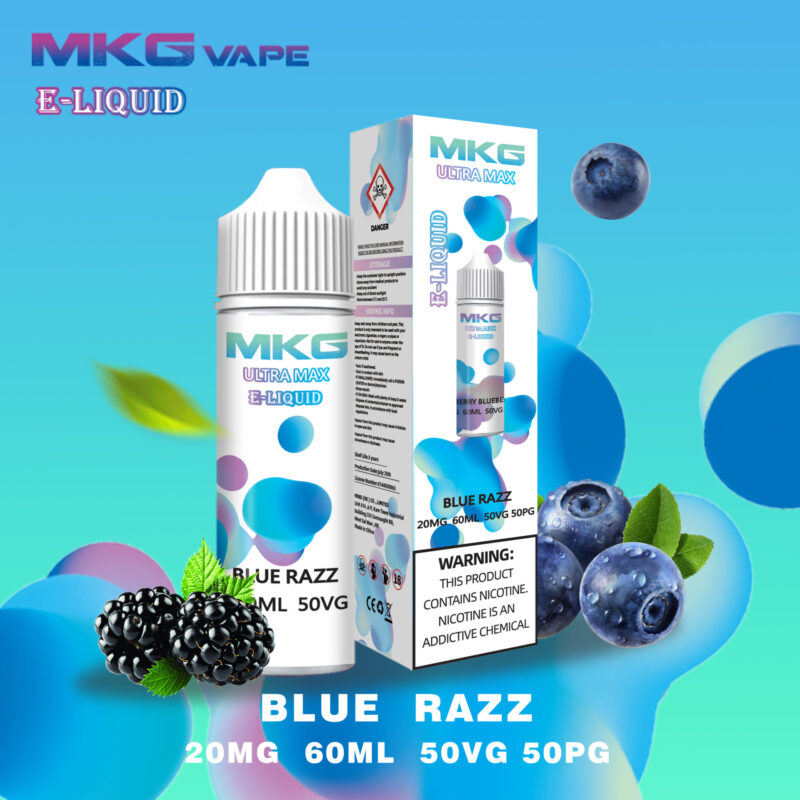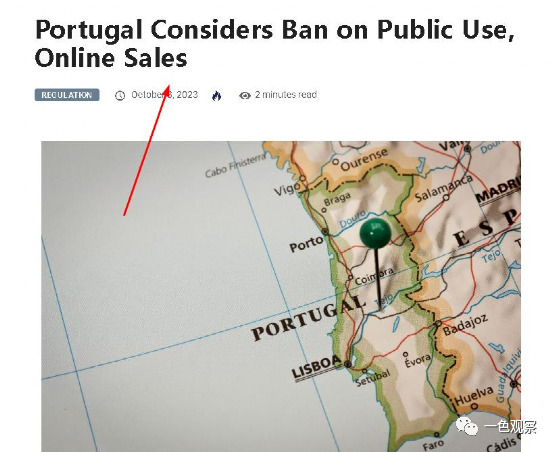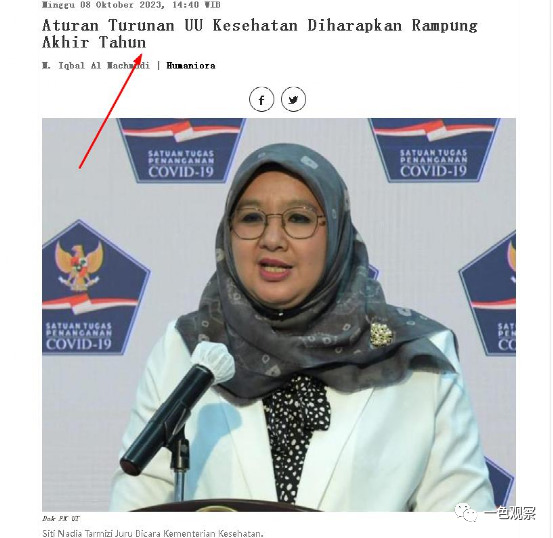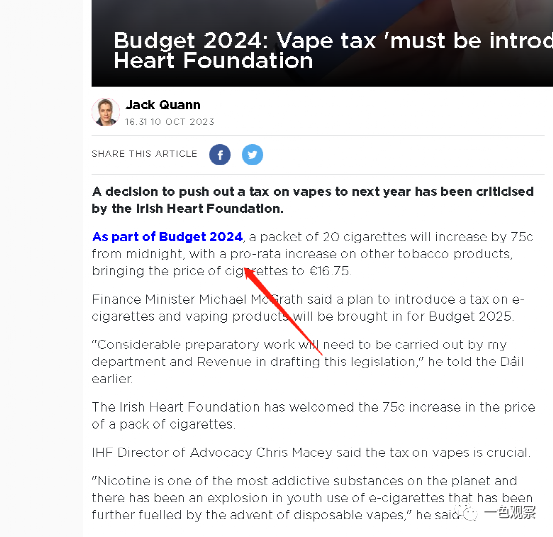Could flavored e-cigarettes be restricted in the UK?
According to reports on October 15, British Prime Minister Rishi Sunak proposed at the Conservative Party conference that the legal age for purchasing cigarettes in England should be increased by one year each year until the act becomes legal throughout the country. It is considered illegal among the population and is expected to deter young people from engaging in such behavior.
Sunak unveiled his plan at the annual Conservative Party conference and said he wanted to stop teenagers starting to smoke in the first place. It is currently illegal throughout the UK to sell cigarettes or tobacco products to anyone under the age of 18. Sunak’s office said that under the year-on-year changes, children aged 14 and under will no longer be able to legally buy cigarettes in England this year. If Parliament approves the proposal, the legal change would only apply in England, not Northern Ireland, Scotland and Wales. Sunak also said the government would introduce measures to limit the availability of e-cigarettes. It is now illegal to sell e-cigarettes to children under 18 in the UK, but officials say teen e-cigarette use has tripled in the past three years, with more kids now using e-cigarettes than smoking. The government will consider options including restricting flavored e-cigarettes and adjusting packaging and store displays to make the products less attractive to young people. British American Tobacco fell 1% immediately after Sunak announced the plan, while Imperial Brands shares fell 2.4% after Sunak’s speech.
In August, China exported US$13.74 million of Japanese e-cigarettes!
According to news on October 15, according to trade data updated by the General Administration of Customs of China, data on e-cigarettes exported from China to Japan in August 2023. The export volume was approximately US$13.74 million (approximately RMB 100 million), a month-on-month decrease of 41.54% and a year-on-year decrease of 55.89%. The export volume was 102,239 kilograms, approximately 102 tons, a month-on-month decrease of 42.15% and a year-on-year decrease of 51.92%.
The export unit price was US$134.41/kg (approximately RMB 978/kg), an increase of 1.06% month-on-month and a year-on-year decrease of 8.26%. In May this year, Japan’s export volume was the largest, reaching more than 300 million.
Online sales of e-cigarettes may be banned in Portugal
News on October 15th, according to Vaporvoice, the Portuguese government is currently considering a new bill aimed at regulating the use of e-cigarettes and other tobacco products. This new bill will include the latest delegated regulations from the EU Tobacco Products Directive, which includes provisions for heated tobacco products and e-cigarettes.

The main goal of the bill, Draft Bill 88/XV, is to expand the scope of no-smoking areas to include restrictions on the use of e-cigarette products, which will effectively ban their use in outdoor venues such as bars and restaurant terraces. e-cigarettes and restricting their sales by banning online sales of e-cigarette products. . He believes Portugal should follow the success of countries such as the United Kingdom and Sweden that have encouraged smokers to switch to safer nicotine products, rather than making these products more difficult for smokers to obtain. He also noted that banning the sale of e-cigarette products online could leave those who cannot find a nearby outlet selling alternative nicotine products with the option of continuing to smoke.
Geekvape Philippines holds the world’s first e-cigarette industry fan festival!
According to news on October 15, Geekvape recently announced that it will hold the world’s first e-cigarette industry “Geek Festival” fan festival in the Philippines.
This groundbreaking event not only shocked the Philippines, but also marked a wave of change for the entire industry. The scale of the event was evident with over 5,000 attendees, including representatives from Southeast Asia, top influencers and industry media. The event was also broadcast live, attracting the attention of millions of people around the world. In addition, Geekvape also launched its latest products at this ceremony: GEEKBAR MCU and GEKKBAR X FLAVA co-branded products, both equipped with Geekvape’s first industry-leading VPU atomization solution. Through this effort, Geekvape showcased its most advanced technology and products. For this event, GeekVape carefully planned six special exhibition areas: GEEK historical area, GEEK classic product area, GEEK new product release area, GEEK DIY e-liquid area, and GEEK cooking District, GEEK Cultural Street. These displays cover the company’s development history, product line displays, new product launches and future blueprints. Its disposable e-cigarette sub-brand Geekbar has launched a highly anticipated new series, which has been warmly welcomed and praised by e-cigarette enthusiasts around the world.
Malaysian e-cigarettes will be subject to consumption tax! ?
According to news on October 15, the Malaysian government’s recently revised “Narcotics Law” has begun to strictly regulate e-cigarettes, requiring e-cigarettes and e-cigarette oils containing nicotine to meet tax requirements and collect consumption tax. According to Headtopics, Malaysian Health Minister Zaliha said that the registration of the Poisons Act promulgated on March 31 is a form of supervision for e-cigarette products containing nicotine liquids and gels.
“I emphasize that the imposition of export taxes on e-cigarette products containing nicotine is consistent with Article 6 of the World Health Organization’s Framework Convention on Tobacco Control (FCTC),” Zariha said. She added that it was not necessary to obtain permission from the Poisons Commission before doing so. Previously, the Malaysian Examinations Association (MKTM), the Malaysian Green Lung Association (MGLA) and the Voice of Children (VOC) submitted a complaint to the High Court accusing Zaliha of harming public health.
Bulgaria plans to ban flavored e-cigarettes?
On October 15, according to reports from overseas news website Novinite, the Bulgarian government proposed to ban the sale of electronic atomizers that have aromatic flavors and contain flavoring in any of their components (such as filters, paper, packaging, capsules or other technical components).

Currently, Bulgaria has submitted a bill to amend the Tobacco and Tobacco-Related Products Law to the Parliament. Before this, tobacco companies were not required to add health warnings on the packaging of heat-heated tobacco products, but this will change after the bill is passed. Bulgaria also specifically mentioned that e-cigarettes and/or refillable smoking devices and other tobacco products other than tobacco products that were produced or put on the market before this law came into force and did not meet the requirements of this law may continue to be offered and sold until they are sold out. until, but no later than January 1, 2024. At the same time, the same regulations also apply to heated tobacco products that do not meet the requirements of this law and are produced or placed on the market before October 23, 2023.
Kenyan lawmakers call for ban on BAT nicotine pouches
According to Kenyan media Mwakilish, Kenyan lawmakers are calling on the government to ban British American Tobacco (BAT) from selling nicotine pouches. In a speech in the Kenyan Parliament, Health Minister Susan Nakhumicha was asked about the issue of addictive drugs, especially the sales of British American Tobacco’s nicotine bag brands Lyft and Velo in the country.
Although the brand has recently gained popularity among college students, it has not yet been clearly communicated about the health risks associated with using the product. Under the Kenya Tobacco Control Act (KTCA), all nicotine pouches and tobacco product packaging must carry warnings in English and Kiswahili. MP Sabina Chege displayed two boxes of Velo brand nicotine pouches in the halls of Parliament to reveal the circulation of the addictive substance in local stores. The health minister hinted that a technical team will be formed to investigate the 2007 Tobacco Bill and make recommendations. British American Tobacco has worked hard to expand its product line beyond cigarettes, successfully launching smoke-free products, traditional snus, e-cigarettes and modern snus products such as Velo. In 2019, the Kenyan Ministry of Health expressed concerns about the transfer of control rights over nicotine pouches from the Medicines and Drugs Commission to the Tobacco Control Commission, and therefore suspended the sale of nicotine pouches in Kenya. In 2022, an agreement was reached to allow the sale of nicotine pouches, thereby classifying them as tobacco products.
Several brands launch nicotine gum!
According to news on October 15, the compound annual growth rate exceeds 5%? Recently, Aroma King, a well-known European disposable e-cigarette brand, said that they have launched an innovative product-nicotine chewing gum called NoNic. This product is specially designed for the European market as a new alternative to traditional nicotine and is designed to cater to users who do not like smoke.
At the same time, Swiss emerging tobacco brand VONT also revealed that they have launched nicotine chewing gum in Switzerland. This innovative product has attracted the attention of many consumers and received positive feedback. According to data from data consulting agency GlobeNewswire, the global nicotine chewing gum market will reach US$1.5 billion in 2022. The market size is expected to increase to approximately US$2.4 billion by 2032, and is expected to continue growing at a compound annual growth rate of 5.1% starting from 2023. At the same time, it conducted a detailed analysis of the nicotine chewing gum market in 2022: By type, in 2022, the nicotine chewing gum market will be dominated by the 2 mg/piece chewing gum dosage segment. In terms of distribution channels, the pharmacy segment accounted for the largest market share of the nicotine gum market in 2022 and accounted for the largest revenue share. North America will dominate the market with the highest revenue share (33.6%) in 2022.
Indonesia will cover the problem of e-cigarette addiction and is expected to be enacted before the end of the year!
According to news on October 15, Indonesian media Mediaindonesia reported that Indonesia is expected to complete the derivative regulations of the “2023 Health Law” by the end of 2023. The derivative regulations include the protection of addictive substances in tobacco and e-cigarette products.

Previously, Indonesian Minister of Health Budi Gunadi Sadikin said that this derivative regulation may be completed as early as the end of September 2022. Siti Nadia Tarmizi, director of the Indonesian Ministry of Health’s Public Service and Communications Bureau, said in an interview that work on regulations is still ongoing. Despite the length of time it will take, no regulations have yet to reach an impasse. Diah Satyani Saminarsih, founder and CEO of the Indonesian Center for Strategic Development Initiatives (CISDI), pointed out that the main issues in health laws and regulations include the management of health workers, primary health services integration, health care for non-communicable diseases, protection of addictive substances in tobacco and e-cigarette products, emergency response to unusual situations and outbreaks, health financing, community engagement, and governance for guidance and oversight. This also shows that Indonesia’s e-cigarette governance will be more complete in the future.
Exports of e-cigarettes to the Netherlands have increased, reaching nearly 300 million in August!
According to China Customs trade data, China’s e-cigarette exports to the Netherlands in August 2023. The details are as follows: the export volume was 976,125 kilograms, approximately 976 tons, a month-on-month increase of 30.08%, and a year-on-year increase of 162.12%.

The export unit price was US$40.82/kg (approximately RMB 298/kg), an increase of 2.06% month-on-month and a year-on-year decrease of 48.66%. The export volume was approximately US$39.85 million (approximately RMB 290 million), a month-on-month increase of 32.76%, and a year-on-year increase of 34.58%. Usually there are only 100 million, but some peaks occur in April and May, reaching more than 200 million. August data continued to grow.
The British Labor Party supports Prime Minister Sunak’s anti-smoking policy!
News on October 15, according to the British Sun, Rachel Reeves, a member of the British Labor Party and Shadow Chancellor of the Exchequer, told the media that the Labor Party supports Prime Minister Rishi Sunak’s anti-smoking policy.
Prime Minister Rishi Sunak, a Conservative, is launching a historic crackdown on cigarettes, planning to limit the number of smokers by raising the legal age every year until no one smokes anymore. In this regard, Reeves expressed his belief: “We must resist the biggest preventable causes of disease, disability and death.” Sunak said that the anti-smoking plan will be subject to a “free vote” in Parliament, that is, party leaders will not tell MPs How we vote.
Latvia will gradually increase e-cigarette consumption tax!
According to news on October 15, the Eastern European country Latvia recently stated that starting from 2024, it will gradually increase the consumption tax on e-cigarette oil, cigarettes, alcohol and alternative tobacco products. This revised bill has received government support.

According to new reports from Latvia, starting from 2024, Latvia will gradually increase excise taxes on e-cigarettes, cigarettes, alcohol and alternative tobacco products. This revised bill received government support on October 9. Starting from March 1, 2024, a three-year consumption tax increase phase will begin. The consumption tax on e-cigarettes, cigarettes, cigars and interchangeable goods will gradually increase and narrow the retail price difference between them. The consumption tax on the above products in 2025 and 2026 will be adjusted on January 1 of each year.
The United States will strictly regulate flavoring, and the High Court has rejected the appeal of e-cigarette companies!
According to news on October 15, the U.S. Supreme Court recently rejected the appeal of e-cigarette companies, and the FDA is turning to strict supervision of flavored e-cigarettes. The FDA said in March this year that nearly 7 million applications had been submitted before the deadline, but the agency had rejected more than 1 million of them. To date, the FDA has approved 23 tobacco-flavored e-cigarette products and devices.

The Associated Press reported in October that the U.S. Supreme Court rejected an appeal against the U.S. Food and Drug Administration’s (FDA) recent rejection of various e-cigarette marketing applications. The case stems from the FDA’s decision in 2021 to reject requests from Avail Vapor for all of its fruity and dessert-flavored e-cigarettes. The company claimed that the FDA deliberately made the application process complicated, resulting in a large number of new product submissions being rejected. The company claims the FDA failed to inform the company of a policy change that would have only allowed applications to include data from studies conducted over time that compared the effectiveness of multiple flavored products with tobacco-flavored products as smoking cessation aids for adults. It is reported that in May, the FDA issued veto orders to 10 companies, which in total produced and promoted approximately 6,500 flavors of e-cigarette oil and e-cigarette products. The FDA said the companies failed to provide sufficient evidence that “protection of public health would be appropriate by allowing the sale of these products.” The rejected products include e-cigarettes with flavors including mint, strawberry cheesecake and cool mint. And in October 2021, a month after the FDA rejected its application, Avail sold all 100 brick-and-mortar stores and subsequently exited the retail business.
Has French e-cigarette export grown?
According to news on October 15, recent data showed that China exported US$14.86 million of French e-cigarettes in August, with export volume increasing by 31% year-on-year.
According to Chinese customs data, China’s e-cigarette exports to France in August were approximately US$14.86 million (approximately RMB 108 million), a month-on-month increase of 0.86% and a year-on-year increase of 11.71%. The French market peaks in April and May, and has continued to peak in these months. The export volume was 254,736 kilograms, equivalent to approximately 255 tons, an increase of 0.06% month-on-month and a year-on-year increase of 31.02%. The export unit price was US$58.34/kg (approximately RMB 425/kg), an increase of 0.80% month-on-month and a year-on-year decrease of 14.74%.
Malaysia’s “strictest smoking ban” was submitted for review, but it was postponed!
According to news on October 15, Malaysian media reported recently that Malaysia’s “Public Health Tobacco Products Control Bill 2023” (GEG Bill) will be submitted to the House of Commons this week. According to the GEG Act, children born in 2007 and after will still be prohibited from smoking, buying or possessing any type of tobacco products, including e-cigarette products, even after they turn 18. However, there is opposition, currently Philip Morris International (PMI), British American Tobacco (BAT), and Japan Tobacco (JTI) have proposed proposals for Malaysia’s Public Health Tobacco Products Control Act 2023 (GEG Act).
As soon as the news came out, public opinion was in an uproar. The GEG bill is said to be the “strictest smoking ban” in Malaysia’s history. According to the Malaysian legislative process, once the GEG bill is approved by the House of Commons and the House of Lords, it will be submitted to the Head of State (i.e., the King of Malaysia) for approval. After the King agrees, the bill will become law and come into effect. In this regard, Ridhwan Rosli, secretary-general of the Malaysian Electronic Cigarette Chamber of Commerce (MVCC), said that the GEG bill may cause serious damage to the Malaysian e-cigarette industry, which is dominated by Malays. The GEG bill aims to ban people in Malaysia born after 2007 from using all tobacco products, including e-cigarettes, so the bill is also known as the “generational tobacco ban.” In addition, the bill imposes restrictions on the registration, advertising, promotion, sponsorship, packaging and sale of tobacco products, including e-cigarettes.
At the same time, the Malaysian International Chamber of Commerce and Industry also believes that if the GEG bill is passed, Malaysia will be regarded as unfriendly to business and will lose foreign direct investment. Jing Ye, the Malaysian business manager of Chinese e-cigarette brand Lanavape, said that based on past experience, Malaysia’s enforcement is not strict, so they expect that the bill may be difficult to effectively implement. So e-cigarette practitioners don’t have many concerns about the bill. It was also revealed that Lanavape is continuing to expand in Malaysia and plans to add more than 10 stores. Packages also include proposals such as a fine of up to RM500 or community service for anyone born after 2007 who is caught smoking or vaping, using or purchasing tobacco or vaping products.
Ireland will tax e-cigarettes in 2025!
According to news on October 15, according to reports from Overseas Buzz.com, in Ireland’s 2024 budget, vaping will be taxed from 2025. Irish Finance Minister Michael McGrath confirmed the news. At the same time, Ireland will also increase the price of cigarettes, which will stimulate consumers to switch to e-cigarettes. At the same time, Ireland proposed to increase the tax on e-cigarette oil by 10 euro cents per milliliter. This means that the price of disposable e-cigarettes will usually increase by 25%, or 2 euros per tube.

McGrath told the congress that the total budget in 2024 will reach 14 billion euros. The budget increases cigarette tax by 75 cents, raising the price of the most popular cigarette pack to 16.75 euros. Other tobacco products will also rise proportionately. This is the eighth consecutive year that cigarette taxes have been increased, but this increase is the largest in that period. The cigarette tax has been increased by 50 euro cents per pack of 20 cigarettes for the past seven years. Ireland (IHF) hopes to raise the price of a pack of cigarettes to €20 by 2025 to combat the growing number of young people smoking.
Is VUSE also pushing big numbers in Russia?
According to news on October 15, VUSE, a brand of British American Tobacco, recently launched VUSE PRO 5000, a disposable e-cigarette that can hold 5,000 puffs in Russia. This product is the largest port number product launched by VUSE to date.
In addition to VUSE PRO 5000, VUSE also launched two products in Russia, VUSE GO 1500 and VUSE GO 600.
Sales of e-cigarettes gradually increase in Hungary
According to a recent set of data, the actual consumption of tobacco in Hungary decreased by 3.9% compared with a year ago, and illegal market transactions increased by 3%. The sales of e-cigarettes are gradually increasing.
According to data released by the Hungarian Central Statistics Office (Központi Statisztikai Hivatal), Hungary’s total consumption of tobacco products reached 311 billion forints (approximately RMB 6.2 billion), 11.3% higher than a year ago. Taking into account the inflation rate of tobacco products during this period of 15.2%, actual consumption decreased by 3.9%. But in legal channels, about 6 billion cigarettes are sold in a year, so tobacco taxes have been paid and access to national tobacco shops. More than a decade ago, that number was double. At the same time, sales of e-cigarettes have gradually increased, although black and gray market transactions are also rampant. Similar heated tobacco products are also very popular, although we don’t yet have data on long-term sales of these items.
Louisiana, USA, strictly prohibits unregistered e-cigarettes!
According to news on October 15, starting November 1, if the product does not appear on the registration form, it will not be legally sold in Louisiana.
According to Nola, starting on October 1, manufacturers of e-cigarettes and other alternative nicotine products sold in Louisiana should have begun registering their products one by one with the Office of Alcohol and Tobacco Control. Starting November 1, if a product does not appear on the registry, it will not be legally sold in Louisiana. The bill, introduced by Louisiana Congressman Paul Hollis, began as a bill to raise taxes on e-cigarettes, but quickly evolved into a broader law aimed at drastically reducing e-cigarette sales. The scope of sales, especially those marketed to adolescents, has not been approved for sale by the U.S. Food and Drug Administration (FDA). The registry lists all FDA-approved e-cigarettes and alternative nicotine products sold in the state. If a product does not appear on the registry, it cannot be legally sold in Louisiana. To be legally sold in Louisiana and listed on the state’s “V.A.P.E. Directory,” manufacturers must submit a form certifying that each of their products meets the following criteria: The product has been marketed in the United States since 2016 and is manufactured The manufacturer applied for FDA marketing authorization before 2020; the product’s FDA marketing authorization is under review; the product does not have FDA marketing authorization, but the manufacturer obtained a suspension order in the lawsuit; the product received FDA marketing authorization.
UAE e-cigarette exports surged 70% year-on-year?
According to news on October 15, recent Chinese customs data showed that China exported US$17.3 million of e-cigarettes to the United Arab Emirates in August, with export volume increasing by 78% year-on-year.
According to the data, the export volume was approximately US$17.3 million (approximately RMB 126 million), a month-on-month increase of 13.50% and a year-on-year increase of 47.66%. The export volume was 399,492 kilograms, approximately 400 tons, an increase of 7.05% month-on-month and 78.28% year-on-year. The export unit price was US$43.32/kg (approximately RMB 316/kg), an increase of 6.02% month-on-month and a year-on-year decrease of 17.18%. January and June are both peak months.
Health Canada approves China’s first nicotine pouch!
According to news on October 15, according to PR Newswire, Health Canada has granted Nicoventures Trading Limited, a subsidiary of British American Tobacco, a license to sell nicotine bags ZONNIC, which can help adult smokers quit smoking by delivering nicotine into the body. Imperial Tobacco of Canada (ITCAN) will become the exclusive distributor of ZONNIC in Canada.
It is worth noting that ITCAN is a subsidiary of British American Tobacco and the company has no relationship with the Imperial Tobacco brand. Frank Silva, President and CEO of ITCAN, said: “This is the first time in Canada as no other nicotine pouch has been authorized by Health Canada.” It is reported that ZONNIC does not contain tobacco and can temporarily relieve smoking cravings and Nicotine Withdrawal Symptoms, is licensed as a natural health product (NHP) and has been authorized by Health Canada for sale as a form of nicotine replacement therapy (NRT).



